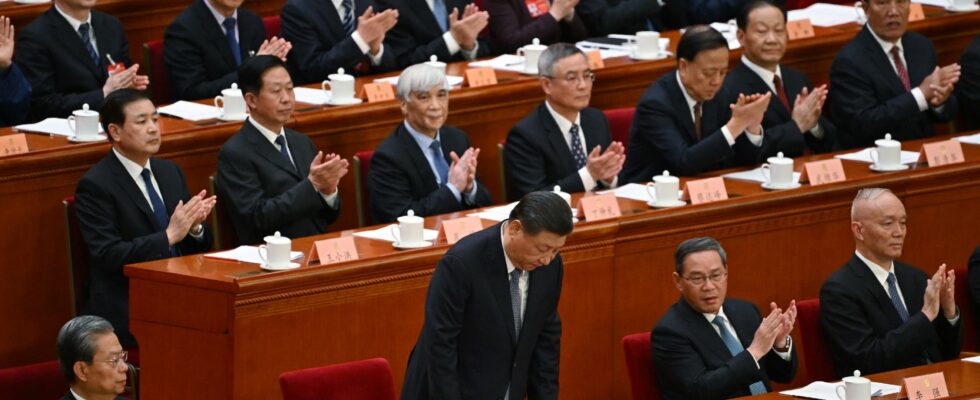“The foundations for healthy economic recovery and growth must be consolidated.” These are the evasive terms in which the National Bureau of Statistics of China (NBS) – a supervisory body under the responsibility of the State Council – describes the economic situation of the world’s second largest power.
The leaders of the Chinese Communist Party (CCP) will have plenty of time to discuss this observation during the third plenum, which takes place from July 15 to 18. This plenary assembly is one of six held during each term. From it will emerge the future five-year economic plan, the current one coming to an end in 2025 with a dismal economic record.
It is highly likely that the 2024 plenary assembly will not be as historic as that of 1978. China’s economic success, under Deng Xiaoping (1978-1989) and even beyond, was driven by this customary economic planning meeting. The latter led the country to market socialism, leaving, according to Reuters800 million Chinese people in poverty. Each mandate has its 3rd plenum, therefore, and for this year, the trend is towards moderation.
Chinese Engine Misfires
In the second quarter of 2024, the country’s growth is up 4.7% compared to the previous year. A slowdown trend compared to the 5.3% of the previous quarter. To illustrate this hum, two data appear relevant: retail sales, up barely 2% in June 2024, and the increase of only 5.3% in industrial production.
The epicenter of the health crisis, China has only lifted its draconian measures for a year and a half, and its economy is still struggling to recover. Because since then, the main markets – where Chinese exports abound – have started to erect trade barriers, particularly in the green industry sector. Last May, Joe Biden increased customs duties on electric cars from China by 100%. The European Union, to a lesser extent, imitated its ally across the Atlantic, increasing customs duties by up to 38% for the Saic group.
On its territory, the country is facing the old real estate crisis. From the deliberations of the 3rd plenum, financial analyst Moody’s anticipates only “a few support measures” for this sector, once the spearhead of the Chinese economy. Real estate collapsed at the same time as Evergrande, a giant strangled by debt. The company had lost 80% of its shares in the fall of 2021, dragging the entire sector down with it.
In an interview with L’Express in March, Chinese economics specialist François Chimits assured that the apparent stabilization of the third quarter of 2023 is more a matter of “artificial levers” and fears that the increase in the “stock of unsold goods” combined with the “non-correction of prices, […] “foreshadows a new drop in activity.”
“A few measures” for real estate, “adjustments” for the high-tech sector… Moody’s, in its forecasts for China, is not counting on a radical change of direction. The government, as helmsman, is reportedly considering a growth rate target of around 5%, far from what the world’s factory has experienced over the past two decades, when double-digit growth was the norm.
A strategy of stubbornness
Leaders fear that too radical a change could spell failure. Xi Jinping’s authoritarian turn – ending term limits – leaves no room for disagreement in the big assemblies. “Everyone is repeating what they think they’re supposed to say, what the leader wants to hear, and […] “This can have a negative effect on the public policies that are implemented,” analyses Jérôme Doyon, assistant professor at the Centre for International Relations Studies at Sciences Po, for RFI.
These concerns leave the issue of youth unemployment, which the BNS estimated at 21.3% in June 2023, in the blind spot. Furthermore, the regime is still banking on its industry, despite the protectionist trend in the American and European markets, without providing an answer to the problem of slumping consumption.
Finally, another theme is expected to encroach on the economic issue, which is supposed to be the main subject of the 3rd plenum: the military subject. Last May, Asialysta media outlet specializing in Asian issues, focused on the management of anti-corruption reports within the People’s Liberation Army, as well as the question of the appointment, in December 2023, of the new Minister of the Armed Forces, Dong Jun.
